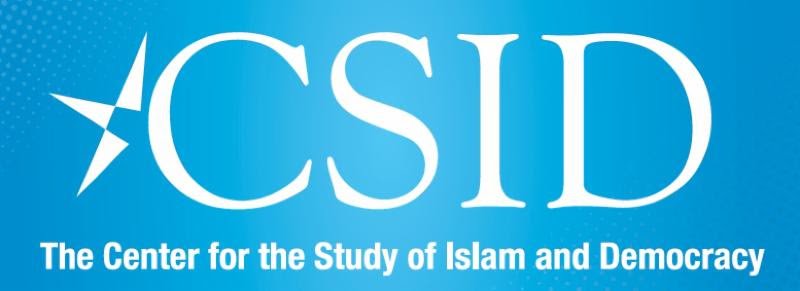The Center for the Study of Islam and Democracy (CSID) held its annual conference in Washington, DC on April 26 to discuss the perilous state of democracy in the Middle East. The theme of this year’s event was “Authoritarianism and Democratic Decline in the Age of Sectarianism and Populism.”
University of Denver professor Nader Hashemi, a conference co-organizer, began the day by challenging the notion of “authoritarian stability,” which asserts that strongmen are needed to bring stability to the volatile region. Hashemi described this theory as “a recipe for greater disaster and disappointment.”
The Arab world’s most populous country, Egypt, is currently a test case for the “authoritarian stability” thesis, as President Abdel Fattah el-Sisi has ruled with an iron fist since the 2013 military coup that ousted democratically elected President Mohamed Morsi. Sisi was overwhelmingly re-elected with 97 percent of the vote in March, in an election that few analysts viewed as free and fair.
Andrew Miller, deputy director for policy at the Project on Middle East Democracy, noted that Sisi’s opponents were systematically arrested and/or harassed by Egypt’s security apparatus in the lead up to the election. As a result, his only opponent was Mousa Mostafa Mousa, a politician who endorsed Sisi until he entered the race hours before the registration deadline in January. With the results of the election all but predetermined, voter turnout was low—officially only 41 percent, but Miller believes actual turnout was likely closer to 30 percent.
While Sisi remains in a powerful position, Miller cautioned that his hold on power could become tenuous if the country’s economic and security challenges worsen. The Egyptian military is a risk-averse organization and is unlikely to plot against one of its own, but the military also fears chaos, and could force Sisi out of office if the former general becomes the target of a large-scale popular unrest, Miller said.
Daanish Faruqi, a visiting scholar at Rutgers University, noted that many of Egypt’s elite liberal intellectuals support Sisi, despite his autocratic governance. Such individuals emphasize cultural reforms over political reforms, he said. In particular, they argue that the so-called threat to Egyptian culture presented by groups such as the Muslim Brotherhood must be dealt with before the country focuses serious attention on democratic reforms.
Faruqi accused these liberals of weaponizing high culture in an effort to legitimize their support for Sisi. “It seems that liberals in Egypt have learned nothing since the events of 2011 and 2013, an enduring reminder that their project remains deeply elitist and one mired in breathtaking contradictions,” he said.
Amy Austin Holmes, a professor at the American University in Cairo, said Sisi’s government has targeted civil society to a greater extent than did former President Hosni Mubarak’s regime. While civil society organizations faced some repression and restrictions under Mubarak, Sisi appears to be set on eliminating nearly all forms of civic engagement by targeting organizations working to reinforce government policies. “Even those organizations that do operate entirely within the scope of the state’s plans are being harassed, imprisoned, arrested and shut down,” she said.
For instance, Holmes noted, authorities have targeted organizations that work to uphold laws preventing child marriage, promote Christian-Muslim dialogue, enforce court decisions on workers’ rights, and ensure Nubians are granted constitutional rights.
The conference also featured two representatives from Tunisia, who explained the challenges facing the burgeoning North African democracy. According to Khaled Chouket, a member of Nidaa Tounes, Tunisia’s leading secular party, the lack of significant economic progress since the 2010-2011 revolution has left many citizens frustrated. Oussama Sghaier, a member of parliament from the religious Ennahda party, said corruption, security and the full implementation of the country’s constitution are three issues facing Tunisia.
Both leaders emphasized the importance of governing by consensus. Chouket said the ability of Nidaa Tounes and Ennahda to work together helped prevent discord and disorder in the years following the uprising. At the same time, he and Sghaier agreed there is still much work to be done in promoting the important role that societal and political consensus play in ensuring a sustainable democracy.
TunisianMonitorOnline (wrmea)




